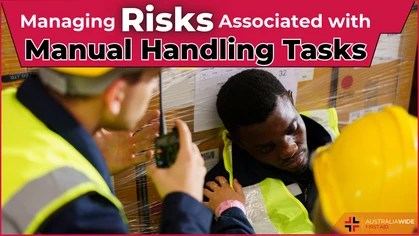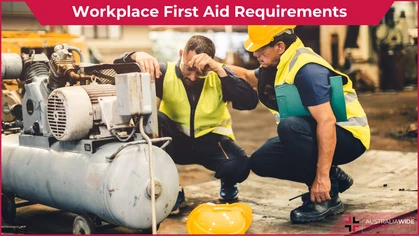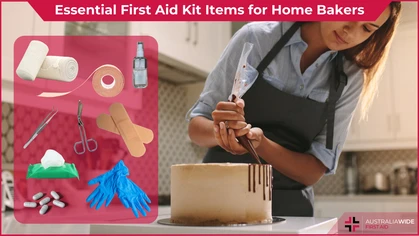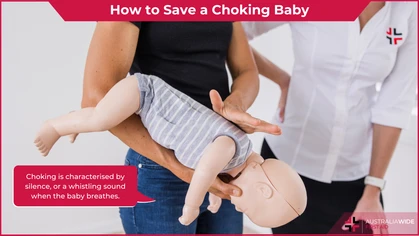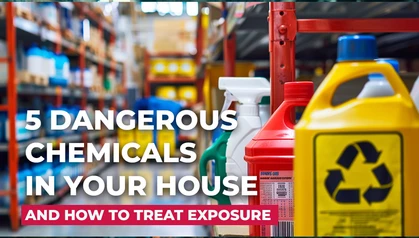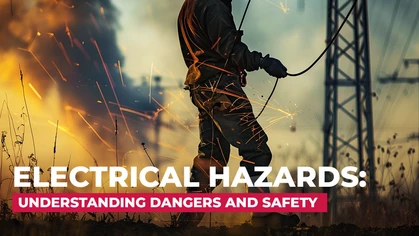Ensuring Safe and Quality Food: The Importance of Food Safety Training for the Food Industry

Danger
 The food industry produces and distributes safe and high-quality food products.
This can only be achieved through proper food safety training for all individuals involved in food production, handling, and distribution.
The food industry produces and distributes safe and high-quality food products.
This can only be achieved through proper food safety training for all individuals involved in food production, handling, and distribution.
The Critical Aspects of Food Safety Training
Covers many crucial topics in preventing food poisoning and allergic reactions. Proper food handling, first aid training, and knowledge of food storage, processing, and distribution are essential for ensuring the safety and quality of food products. Food handlers must also be aware of the risks of foodborne illness and the different types of food poisoning. Foodborne illness is a common problem worldwide, and it can cause severe health issues, including hospitalization and even death. Some of the most common types of food poisoning include Salmonella, E. coli, and Listeria. Food handlers must be familiar with the symptoms of these illnesses and know how to prevent them. People with food allergies are also at risk of life-threatening allergic reactions, and food handlers must be aware of the different types of food allergies and how to avoid the foods allergens include:- Peanuts
- Tree nuts
- Shellfish
- Fish
- Soy
- Wheat
- Dairy
Safe Food training
Safe food handling training is essential to prevent cross-contamination of allergens and avoid life-threatening allergic reactions. All food handlers must understand and follow proper food safety protocols to prevent foodborne illness. The FDA ( food and drug administration) regulations require food establishments to provide food safety training to their employees to ensure compliance. This includes knowing how to handle food allergies in a food service environment and preventing cross-contamination of allergens. Safe food handling training covers proper handwashing, cleaning and sanitizing equipment, storing and labeling food products correctly, and preventing cross-contamination of allergens.First aid courses
First aid courses are crucial for food handlers to know how to respond to severe allergic reactions or foodborne illnesses. In an emergency, recognizing the signs and symptoms of a severe allergic reaction and knowing how to administer first aid can be lifesaving. First aid courses provides food handlers with the necessary skills to respond appropriately to an emergency. Aside from choking prevention, CPR, and burns treatment, first aid training also covers other topics.Proper Food handling and storage
Proper food storage is critical to prevent food spoilage and contamination. Food must be stored at the appropriate temperature to maintain quality and prevent the growth of harmful bacteria. Food handlers must understand the correct temperatures for storing food products, whether using a food thermometer or appliance thermometer. Proper storage of frozen food is also necessary to maintain quality and extend shelf life. Some food products require special storage conditions, such as refrigeration or freezing, and food handlers must know how to store them correctly.Food processing includes
Food processing involves several stages, including cleaning, cutting, cooking, and packaging. Each stage requires specific knowledge and skills to ensure that food is safe and high-quality. For example, a clean and sanitized cutting board helps prevent cross-contamination of bacteria, which can cause foodborne illness. Understanding the different preservation techniques is also crucial to ensure that food products are safe and have an adequate shelf life. Food processing training covers food preservation, cleaning and sanitizing equipment, cooking temperatures, and packaging.Food Distribution
Food distribution involves transporting and delivering food products to various locations. Food must be kept at a safe temperature during transportation to prevent spoilage and contamination. Food handlers must also take measures to prevent cross-contamination during transportation. Everyone in the food industry is responsible for ensuring that food products are safe and of high quality. Food safety training is critical to preventing foodborne illnesses and protecting public health. With proper training and education, food handlers can prevent food contamination and ensure the safety of the food products they produce and distribute.
Originally published at
https://www.australiawidefirstaid.com.au/resources/ensuring-safe-and-quality-food
as part of the Australia Wide First Aid Articles Library
